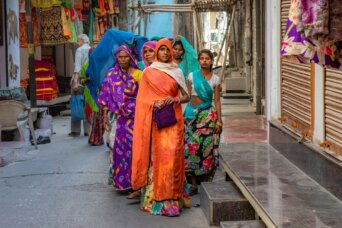- About
- Topics
- Picks
- Audio
- Story
- In-Depth
- Opinion
- News
- Donate
- Signup for our newsletterOur Editors' Best Picks.Send
Read, Debate: Engage.
| topic: | Women's rights |
|---|---|
| located: | India |
| editor: | Tish Sanghera |
During a session of the State Assembly in the southern Indian state of Karnataka last week, KR Ramesh Kumar - a serving member of the legislative assembly (MLA), the upper house of India’s parliament - made what he believed to be an innocent comment. Using an analogy to describe the raucous session and the speaker’s inability to control the commotion, Kumar quipped “when rape is inevitable, enjoy it.”
The speaker and other assembly members are seen to respond with laughter in a video clip that has since gone viral on social media. Understandably, the sight of prominent politicians joking about sexual assault has caused national outrage, driving home the reality that rape is often dismissed and ridiculed - even by the country’s lawmakers.
Though Kumar has issued a response and in his view apologised for the remark, his wording indicates he fails to fully acknowledge his mistake. In a tweet later that day, Kumar wrote: “It was not my intention to trivialise or joke about ‘rape!’ My sincerest apologies if I have offended you. But the situation in the House has deteriorated so much that I used that analogy! Will choose my words carefully in the future.”
Days have passed and there appear to be no consequences for Kumar’s words, with no action taken by his party (Congress) or any other appropriate institution. In reality, comments like these are so commonplace across political parties that as the media attention shifts from Kumar to the next insensitive politician, the public’s short attention span easily forgets.
If Kumar is waiting for the spotlight to move away from him, that may be a smart strategy. For unfortunately, whenever a rape happens in India - currently reported at a rate of 77 occurrences per day - there is always a politician ready to come out with misogynistic commentary. When earlier this year a brutal gang-rape in Mysuru was discussed in the Karnataka parliament, the home minister declared it was essentially the fault of the girls who were attacked. “Around 7-7:30 pm they went there,” he said. “It is a deserted place, they should not have gone.”
Indeed, it is not just male politicians and officials whose attitude toward gender crimes are sorely misguided. A couple years after the infamous ‘Nirbaya’ Delhi rape case made global headlines, politician Asha Mirje publicly said “did [she] really have to go watch a movie at 11 in the night with her friend?” Mirje expanded to her statement, saying “rapes take place also because of a woman’s clothes, her behaviour and her presence at inappropriate places.” The Nirbaya rape case was so horrifyingly vicious that it brought Delhi to a standstill with protests for weeks, cemented India’s reputation as the ‘rape capital of the world’ and the story has recently been portrayed in an award-winning Netflix series called Delhi Crime.
The discourse on rape, women’s agency and toxic masculinity urgently needs to be addressed in India. Crimes against women are on the rise, increasing by over 61 percent in 2021. India cannot afford to have politicians who desensitise gender violence when already social problems like under-age marriage and a small proportion of women in the workforce are being fueled by unchecked patriarchal and misogynistic norms. Unfortunately though, while backlash inevitably arrives against regular tragedies, the policies and systemic change needed to make a real difference do not.
Photo by Lewis J Goetz

